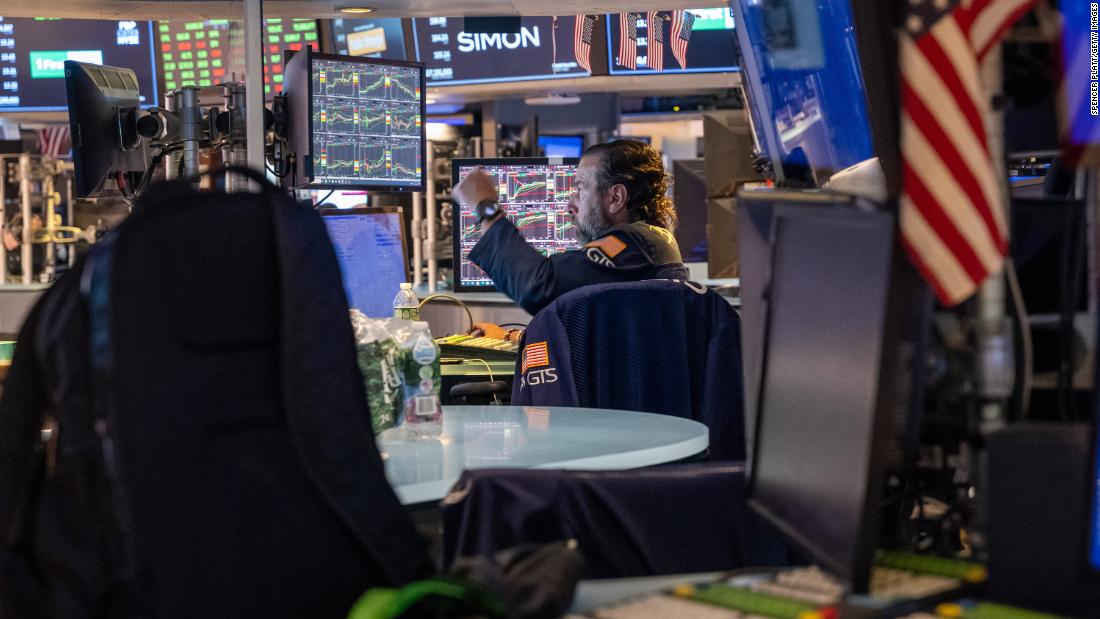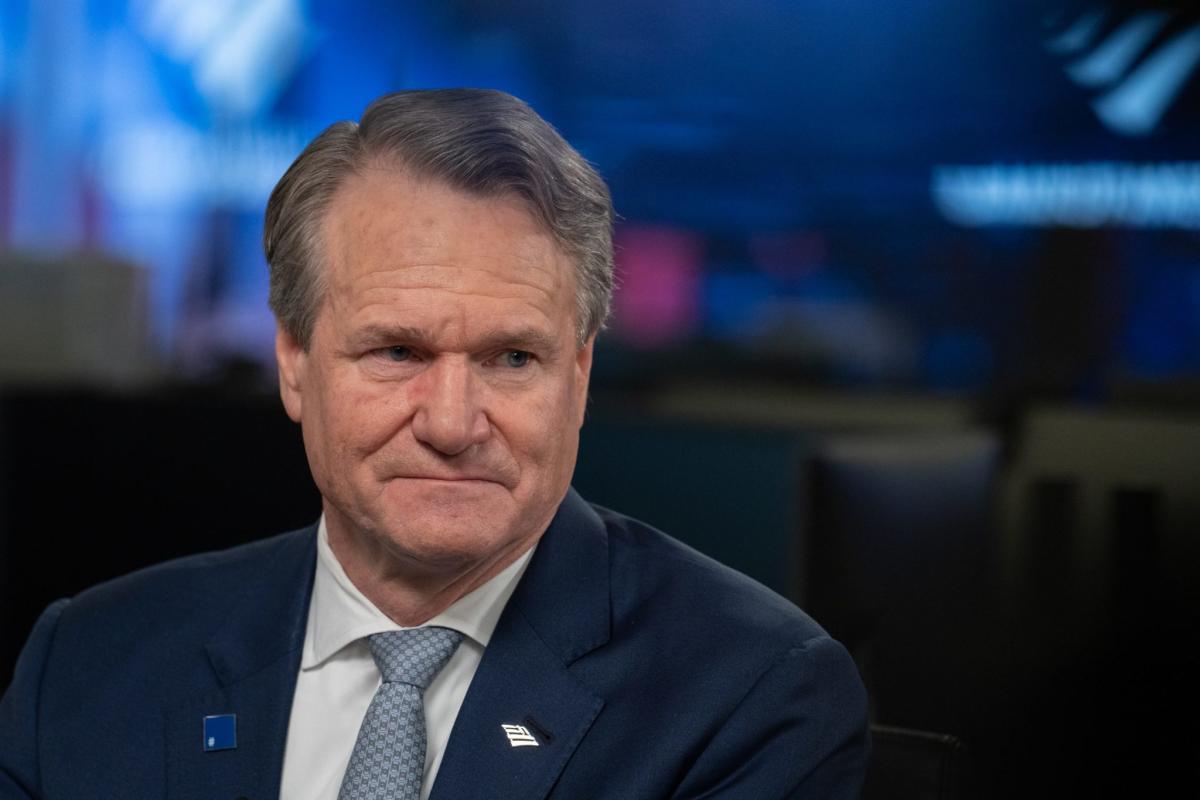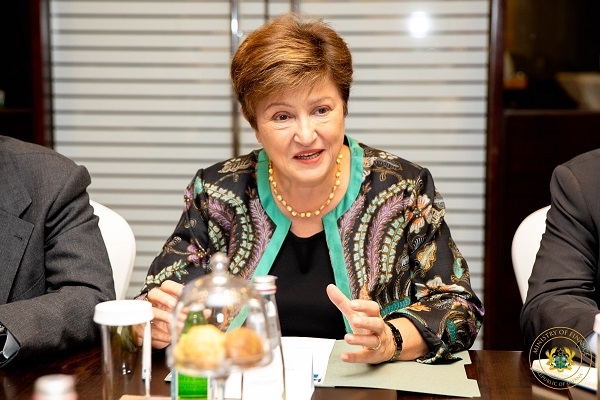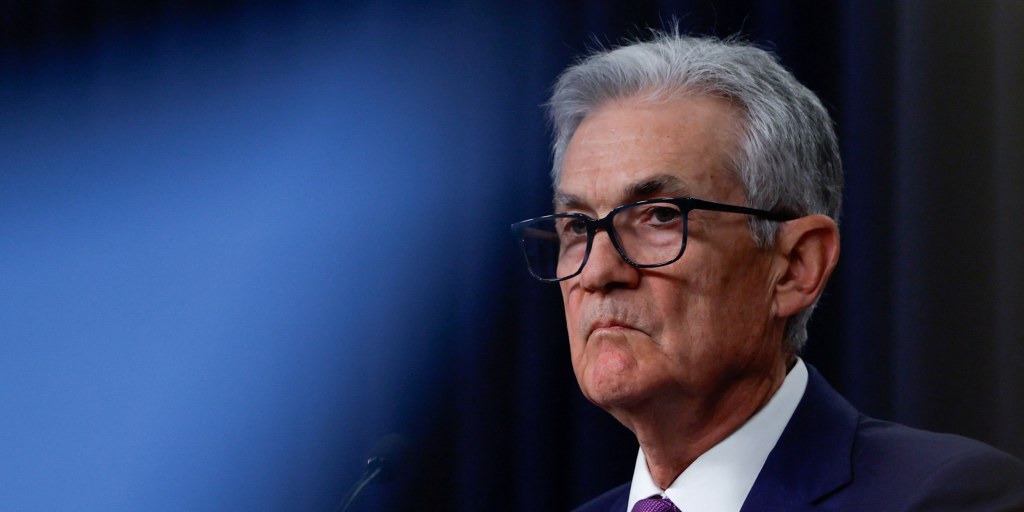The Federal Reserve plans to maintain its outlook for three interest rate cuts in 2024, despite concerns over persistent inflation.

The Summary of Economic Projections, or the Fed dot plot, reveals that nine officials are expecting three quarter-point interest rate cuts, leading investors to closely analyze and interpret the projections.
Federal Reserve Chairman Jerome Powell remains unfazed by recent inflation data and believes it does not significantly change the overall story of inflation gradually moving towards 2%, according to Yahoo Finance reporter Jennifer Schonberger.
Fitch Ratings has upgraded Qatar to AA, citing revenues from its LNG fields that will ensure budget surpluses until the 2030s and a debt-to-GDP ratio expected to decline sharply in the coming years, although the agency warned that the war in Gaza poses a risk to its rating.

The text provides a schedule of programs airing on Fox News Channel and Fox Business Channel, including shows like "Special Report with Bret Baier" and "Legends & Lies: The Patriots."

The US Federal Reserve has decided to keep interest rates steady and hopes for three rate cuts in 2024, but Sahm Consulting Founder Claudia Sahm criticizes the dot plot for its mischaracterization of sentiments from the FOMC and believes it is not a useful tool for communication. She agrees with the Fed's inflation outlook, noting that inflation is coming down but has been a slow process.
The average credit scores in the US have dropped for the first time in a decade as consumers struggle with timely payments and saving money, likely due to decreased savings rates and increased debt levels, according to a report by FICO.

The Bank of Japan may implement more rate hikes before the end of the year following its decision to end negative interest rates.

The Dow and S&P 500 reach record highs as the Federal Reserve predicts three rate cuts in 2024.

The Congressional Budget Office warns that rising debt will pose "significant risks" to the U.S. economic outlook in the coming years, with interest payments on the debt projected to double by 2054 and social safety net programs taking up the majority of the nation's spending.

Silver ETFs, such as SIVR, may be a promising investment opportunity as the metal is trading at a significant discount to its all-time high and has high industrial demand.

Average credit scores in the US have slightly decreased to 717 as a result of high interest rates, inflation, and an increase in missed payments on credit cards. However, efforts are being made in some states, such as Arizona and California, to alleviate the impact of medical debt on credit scores. In order to improve credit scores, consumers are advised to stay under credit limits, maintain old credit card accounts, apply for credit only when necessary, and check credit reports regularly. Additionally, student loan borrowers facing financial hardship may qualify for Biden's new round of debt relief.

The Federal Reserve's decision to keep interest rates higher for longer is raising concerns about a potential recession, as higher rates could lead to tighter lending conditions, layoffs, and a downward economic spiral. Economists are closely watching key economic data, such as GDP projections and unemployment rates, to assess the state of the economy and determine if rate cuts are necessary.
India needs innovative entrepreneurs who can tap into local innovation and address the country's problems rather than simply copying from the West, according to IMF executive director KV Subramanian.

Australia is at risk of entering a recession based on the Sahm rule of recessions, which measures changes in unemployment rates, and warns that the economy is weak and rate rises should be avoided.

US markets were mixed as investors awaited the Federal Reserve's policy decision, with uncertainty surrounding potential rate cuts causing nervousness among traders.

Chinese President Xi Jinping is signaling a desire for increased foreign investment and the attraction of hi-tech firms, promising to open up China's market and introducing measures to benefit foreign investors and expats, including longer visas and residence permits, scrapping access restrictions for foreign investment in manufacturing, and opening up the financial sector, as China seeks to retain foreign companies and achieve economic growth despite Western-led containment efforts.

Credible Operations, Inc. provides tools and information to help improve personal finances, including current mortgage rates and tips for getting the best rate, such as comparing lenders and loan offers.

Protests continue in Cuba as the country faces severe economic and energy crises, with food shortages and blackouts pushing it to the brink of collapse, prompting accusations from Florida Senator Marco Rubio that the situation is a result of Cuba's long-standing Marxist policies. Cuban Deputy Foreign Minister Carlos Fernández de Cossío, on the other hand, blames the US embargo for the food shortages, sparking a back-and-forth between the two sides.

Priscilla Almodovar, CEO of Fannie Mae, shares her experience and approach to making housing accessible in America, emphasizing the importance of homeownership and supporting renters as well.

Mortgage lenders are cutting rates due to falling inflation, providing more affordability for borrowers and stimulating the property market.

The US government will award Intel Corp. $8.5 billion in grants and up to $11 billion in loans to support the expansion of its semiconductor factories, making it the largest award from a program aimed at revitalizing the domestic chip industry.

Despite the White House's claims of economic success, the public's perception of the economy under Joe Biden is negative due to rising inflation and the discrepancy between the official Consumer Price Index (CPI) and the Common Man CPI, which focuses on necessities and reveals higher inflation rates. The CPI's inclusion of non-essential spending and underestimation of shelter prices further contribute to dissatisfaction and a decline in real inflation-adjusted earnings. While high-income earners may benefit from asset growth, those on lower income levels experience slower pay increases and struggle with rising prices. These differing economic realities contribute to public skepticism towards Bidenomics.

U.S. Bank of America CEO Brian Moynihan warns the Federal Reserve not to push consumers too far with policies to control inflation, as the public's spending can only go so far in mitigating an economic slowdown. The CEO notes the consumer's resilience but cautions that spending growth has slowed down and could reach a breaking point. Bank of America's economist previously predicted the hikes and holds the Fed would impose, emphasizing the need to find the "point of pain" for consumer demand.

Bank of America CEO Brian Moynihan warns the Federal Reserve not to "overshoot" on its policies to control inflation, pointing out that while consumers have been resilient so far, their spending will eventually slow down.

Goldman Sachs' chief economist, Jan Hatzius, believes that the US economy is not close to a recession and predicts a soft landing despite concerns over inflation, citing positive news flow and strong activity levels as evidence.

Goldman Sachs economist who predicted 2008 recession now sees potential for another downturn in 2024
Goldman Sachs executive Jan Hatzius, known for predicting the 2008 recession, suggests there is a probability of a recession in 2024 amid mounting concerns about the US economy.

Investors are closely monitoring Federal Reserve Chairman Jerome Powell's statements to determine if their expectations for the first rate cut are accurate, as inflation remains stubborn and could delay rate cuts.

Micron Technologies plans to invest $100 billion in a megafab plant in Central New York, with support from the federal government, to boost domestic research and manufacturing of semiconductors.

Germany's economy is in decline due to policy mistakes, including reliance on cheap Russian natural gas, premature closure of nuclear power plants, and misjudging China's economic growth, leading to a hollowed-out manufacturing sector and vulnerability to competition from China in the global market. Germany's embrace of mercantilism and reliance on EU regulations further hinder its ability to innovate and keep up with the digital revolution, while the demographic challenge of an aging population and political fragmentation add to its economic woes.

UK inflation fell to 3.4% in February, the lowest level in two and a half years, which suggests the country is on track to hit its 2% inflation target by April and may prompt the Bank of England to consider interest rate cuts.

UK Prime Minister Rishi Sunak predicts that the country's economy will bounce back in 2024 despite the challenges of the past few years, including the COVID-19 pandemic and the Ukraine war.

The US economy is performing well on a macro level, but many Americans are feeling trapped in their current situations due to high prices, elevated interest rates, and limited job opportunities. Making major life changes, such as buying a house or finding a new job, comes with significant costs and challenges. As a result, many Americans are delaying these decisions and opting for downgrades in other areas of their lives.
Hot cross bun prices in Australian supermarkets are rising by double-digit figures, despite shrinking volumes, leading to a 'shrinkflation' crisis where products are sold at higher prices with less inside, affecting various food and cleaning product categories.

The Office for National Statistics will publish the UK CPI data for February, with expectations of a fall in headline and core annual inflation but a jump in monthly CPI, which could impact the Bank of England's interest rate outlook and the Pound Sterling.

Pakistan and the International Monetary Fund (IMF) have reached a staff-level agreement on the second and final review under the Stand-By Arrangement, allowing for the release of the last tranche of the $3 billion loan. Pakistan is also interested in a successor medium-term Fund-supported program to address fiscal and external sustainability weaknesses and promote inclusive growth.

The government's recently announced austerity measures in Pakistan are merely symbolic gestures and fail to address the underlying issues of fiscal irresponsibility, with privileged officials enjoying luxuries while a large portion of the population struggles with poverty.

The International Monetary Fund (IMF) has acknowledged that Ghana's economic recovery will be difficult, but remains optimistic that the country will emerge resilient and encouraged Ghanaians to be patient and supportive as the government implements its loan-support program. The IMF Managing Director, Kristalina Georgieva, emphasized the importance of fiscal discipline, reducing expenditure, increasing revenue generation, and investing in education and infrastructure to achieve economic stability and a higher standard of living.

Despite predictions of a recession, the US economy has proven to be more resilient than expected, with strong growth and lower inflation prompting economists to revise their forecasts, suggesting that the Federal Reserve may not be able to cut interest rates this year.

The 50/30/20 budgeting method popularized by Elizabeth Warren is no longer feasible for families due to inflation, leading experts to suggest adjusting the percentages to 60/30/10.

The Federal Reserve is likely to keep interest rates unchanged in its upcoming meeting as it continues to combat inflation, but concerns arise over whether the inflation rate will remain above the 2% target, and analysts predict that the Fed may only be able to implement two interest rate cuts this year.

The probability of a recession starting in the next 12 months in the U.S. has risen to over 76%, driven by the deepening inversion of the U.S. Treasury curve and higher-than-expected inflation, prompting the Federal Reserve to delay expected interest rate cuts.

California had the lowest job growth in the country in 2023, with just 0.87% increase, attributed to factors such as tech layoffs, strikes, and high interest rates, while San Diego added the most jobs and San Francisco experienced a decline.

Two Calgary teachers are accused of sexually abusing students and providing cover for each other, leading to a lawsuit being filed against them and the Calgary Board of Education.
The average Wall Street bonus in New York City fell slightly to $176,500 in 2023, despite a 1.8% increase in Wall Street profits, as the industry took a more cautious approach to compensation and added more employees.

Bank of America CEO Brian Moynihan dismisses calls for increased banking regulation, stating that the US economy is resilient and vibrant thanks to its banking sector.
Credit scores in the United States have declined for the first time in a decade as consumers struggle to make timely payments and save money, likely due to the disappearance of savings cushions and increased debt levels.

A finance professor at the Wharton School predicts that America's $34 trillion debt could lead to a crisis that pushes interest rates to over 7% by 2025 if urgent action is not taken by the government, posing a significant threat to the real estate market.

Despite a viral chart suggesting that Democratic presidents have created the majority of jobs in the US over the past 35 years, a more comprehensive analysis shows a less significant contrast between Democratic and Republican job creation, with various factors beyond presidential influence playing a significant role in economic growth trends.

Several global banks are distancing themselves from Russia due to increased pressure from the US to comply with sanctions, risking punishment from Washington and potential loss of access to correspondent US banks.